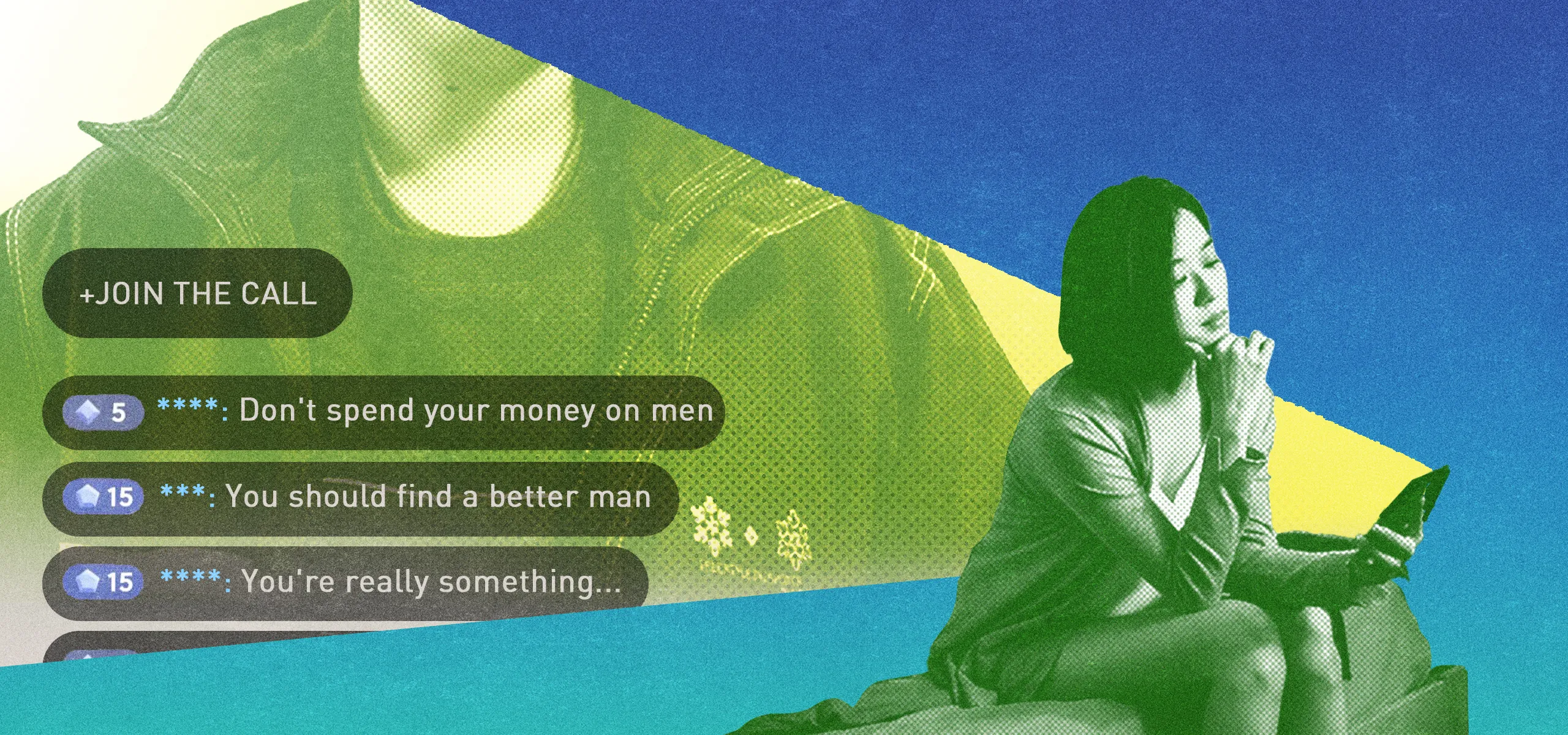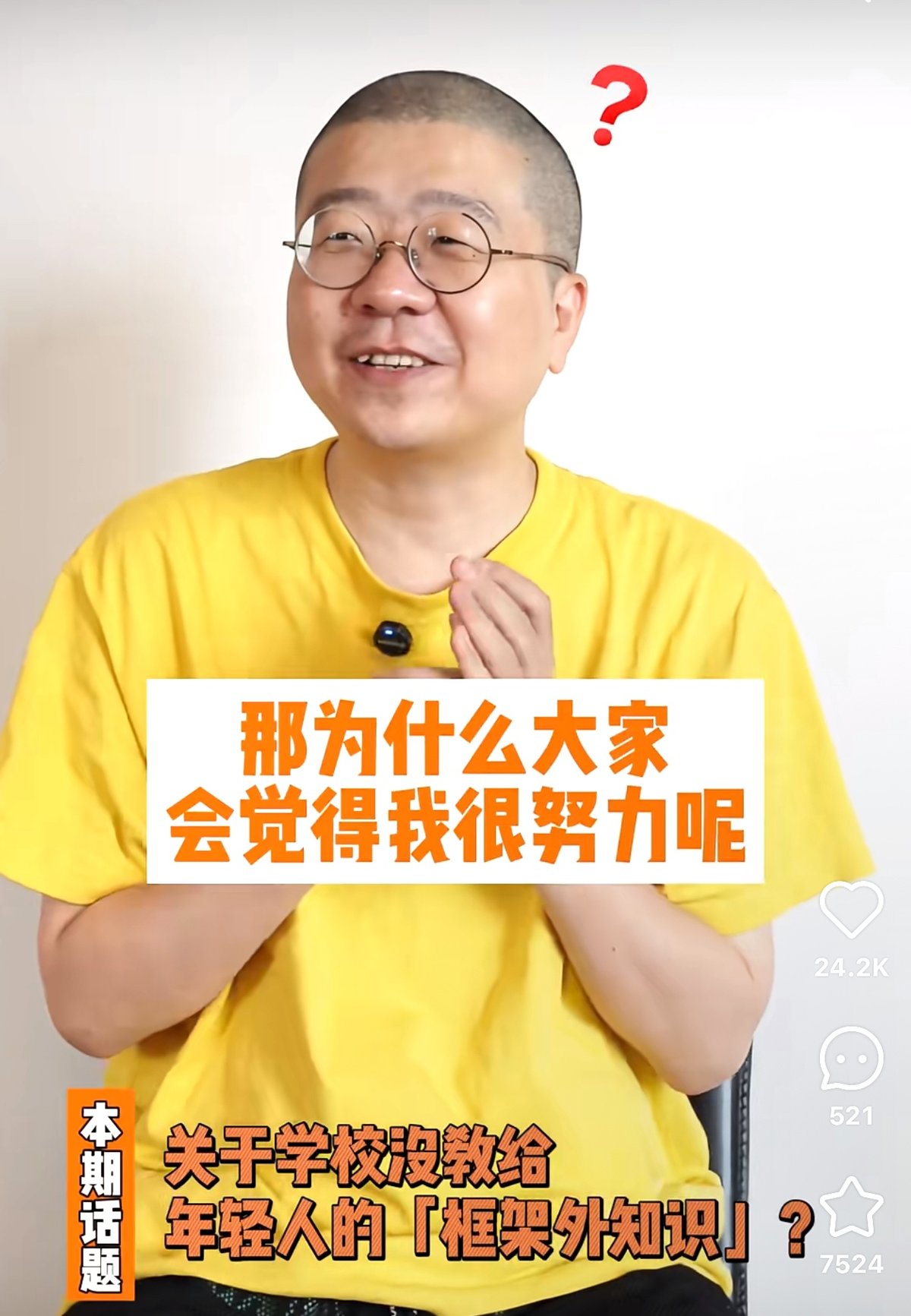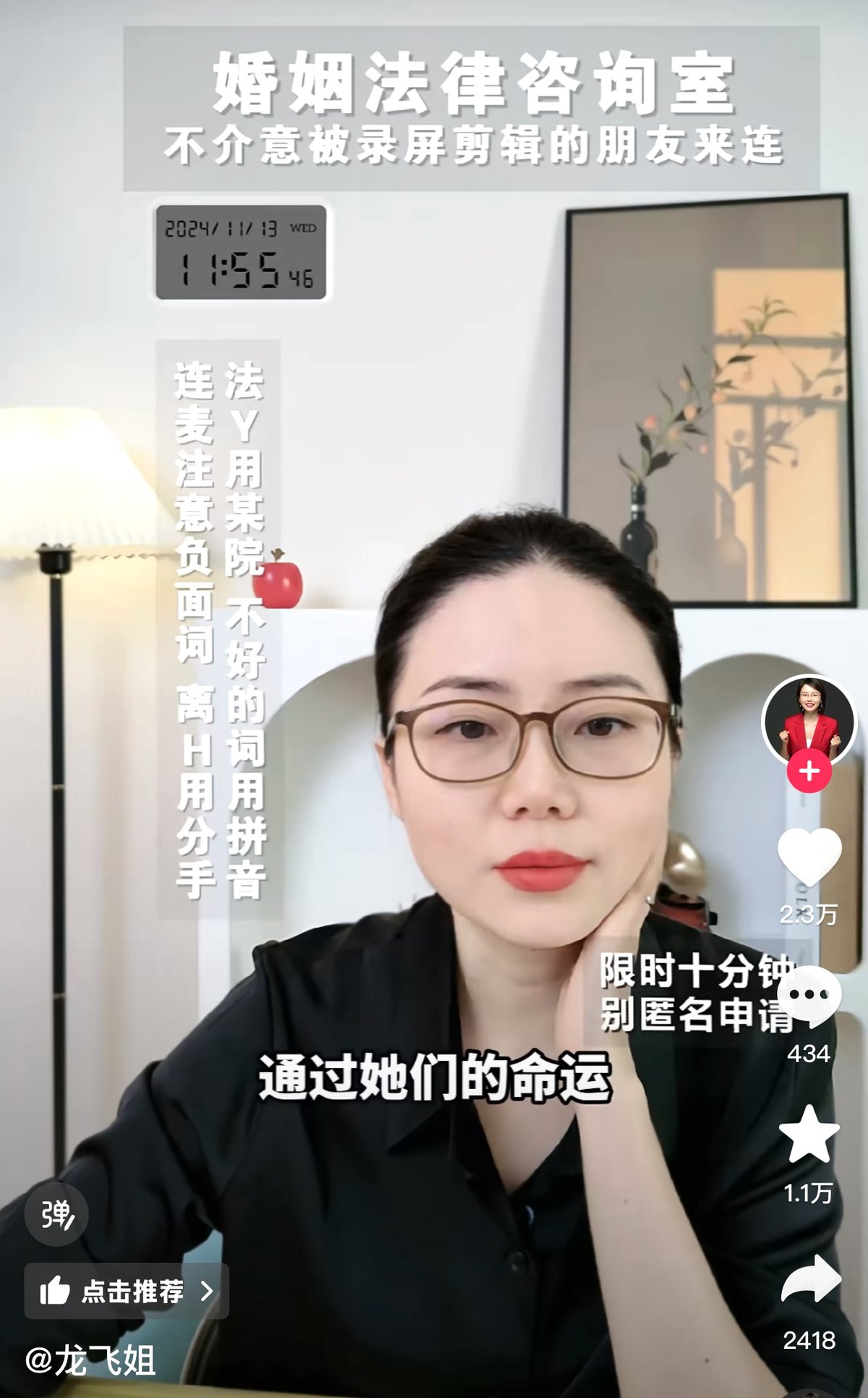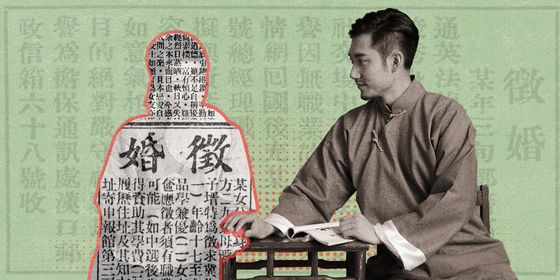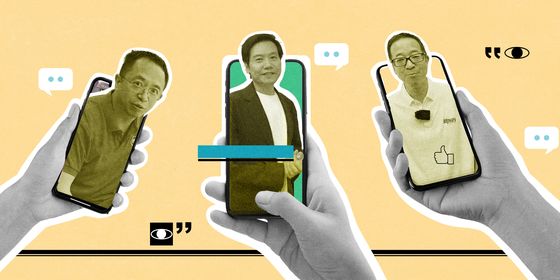As more Chinese women turn to influencers like Li Dan for guidance, growing concerns about their expertise and commercial motivations are becoming hard to ignore
Since last July, Li Dan, a former comedian turned livestreamer, has taken on the role of China’s quirkiest agony uncle five hours at a time, lounging in front of the camera in T-shirts or pajamas and snacking his way through tales of heartbreak. Whether it’s a desperate plea to win back an ex or fiery rants about cheating partners, Li reads these anonymous yet intimate moments of life with a mix of empathy and deadpan humor to his 2.2 million followers, over 80 percent of them women, on the lifestyle platform Xiaohongshu. All the while, purchase links for his snacks flash on the corner of the screen.
The recent rise of “relationship streamers (情感主播)” like Li Dan has provided young Chinese women, including 24-year-old Li Zhenzhen, with a new outlet for seeking advice on their relationship struggles. After breaking up with her boyfriend in the autumn of 2023 and feeling lonely with few friends to turn to, Li Zhenzhen found herself drawn to these livestreamers, sensing they were experienced, reliable, and mature when it came to relationship issues. Even when she missed a livestream session, recorded and edited clips with click-baiting headlines were available elsewhere online.
While an increasing number of young women like Li Zhenzhen find comfort and guidance in these livestream sessions, questions linger about the quality of advice offered by influencers, most of whom lack formal training in therapy or counseling. The commercial side of livestreaming adds another layer of complexity, as many worry that influencers might prioritize selling products over genuinely helping their viewers.
Read more about the Chinese internet culture:
- What Booming AI Revival Services Mean for China’s Relationship to Death
- Online Mindfulness Courses are Booming in China, But Do They Actually Work?
- The Low Bar for Online Defamation in China
These livestreams, hosted by influencers with unique takes on love and relationships, can be comforting and entertaining. Some, like Li Dan, read comments or direct messages and respond with instant, witty reactions, offering advice without judgment. Once he was asked about the fear of fully committing to a relationship, Li Dan responded, “Relationships inevitably end, but some people part ways later—sometimes only at death—while others do so earlier. Because of this, it’s crucial to fully invest while you’re together. If you’re not all in, you’re just wasting time.”
Another one of his most viral pieces of advice is for women to text the men they like with a simple message: ”What are you doing? (在干嘛?)” According to him, Chinese men often interpret this as an implicit declaration of ”I love you.” Zhang Wei, a New York-based therapist and loyal viewer of Li Dan’s channel for over seven months, finds this suggestion both intriguing and highly practical.
“When responding to messages, Li Dan often fills in the gaps in the stories with his own interpretation… His rich life experience and strong communication skills make his advice persuasive, while his male perspective—often absent in similar content—adds a fresh and valuable dimension,” says Zhang.
Real-time interaction is another common method used by relationship livestreamers. Many often invite followers to join calls to share their dramatic stories. They monetize their audiences through paid services, such as one-on-one consultations and recorded lecture packages, or by selling snacks and beauty products, as Li Dan does.
However, the dramatic scenarios highlighted in these sessions are sometimes staged, with hired actors brought in to boost viewer engagement. In 2023, China’s annual consumer rights television program, known as the 315 Gala, exposed how many anchors pretended to help resolve relationship conflicts only to promote product sales, advertising ordinary foods as disease cures, and even targeting elderly viewers. Some have also purchased bots, known as the “internet water army (网络水军)” to boost engagement and sales.
“These livestream sessions primarily target people in emotionally vulnerable states,” explains Qiu Xiyu, a licensed therapist focusing on intimate relationship counseling. “When people feel unsafe or uncertain, they crave definite answers—which is precisely what these hosts provide.”
These definite answers are often highly generalized, with hosts typically analyzing problems through very broad categorizations in just a few minutes—a stark contrast to the services licensed therapists like Qiu provide. Professional therapists usually spend a number of sessions with their clients to break down the situation and uncover any underlying factors.
The Chengdu-based therapist adds that some clients of hers would also learn concepts like “gaslighting,” “narcissistic personality disorder (NPD),” and “attachment style” from videos and articles published by influencers online and only interpret their experience through these terms. “[But] when such pre-defined narratives enter counseling sessions, they often make open discussions difficult. It’s as though they’ve already packaged their problems into specific categories. This mindset can hinder deeper conversations when we try to unpack the actual dynamics in their relationships,” says Qiu. “It can get in the way of more profound self-reflection and exploration of their emotions, thoughts, and behaviors.”
Qiu is not the first to question the validity of the advice given by livestreamers, who often lack proper training and qualifications in psychology and therapy. Zhu Wei, a deputy director at China University of Political Science and Law, told the Gaungzhou-based media outlet Southern Metropolis Daily in January 2024 that it was concerning to see counseling sessions come from hosts without any credentials, and pointed out that much of the content purportedly explaining relationship techniques is not about teaching real skills, but instead exploiting women’s anxieties for profit.
The relationship coach Yue Chuanqu, known to her millions of internet fans as Ququdanüren, went viral in 2023 for preaching the idea that “making money” is the most important aspect of intimate relationships. A former fine arts student at Wuhan University, Yue is better known for her appearance in various singing competitions and, based on public records, hasn’t acquired any professional certification in counseling. She posted videos teaching her followers how to “upward socialize and upward date”—strategies for improving women’s own socioeconomic status by dating men they perceive as more successful—before her account on the microblogging platform Weibo was suspended in December 2023 for ”repeatedly promoting damaging views on love to gain popularity and monetize from it,” according to an official statement. Her other accounts across major social media platforms have also been suspended and have not been reinstated as of this writing.
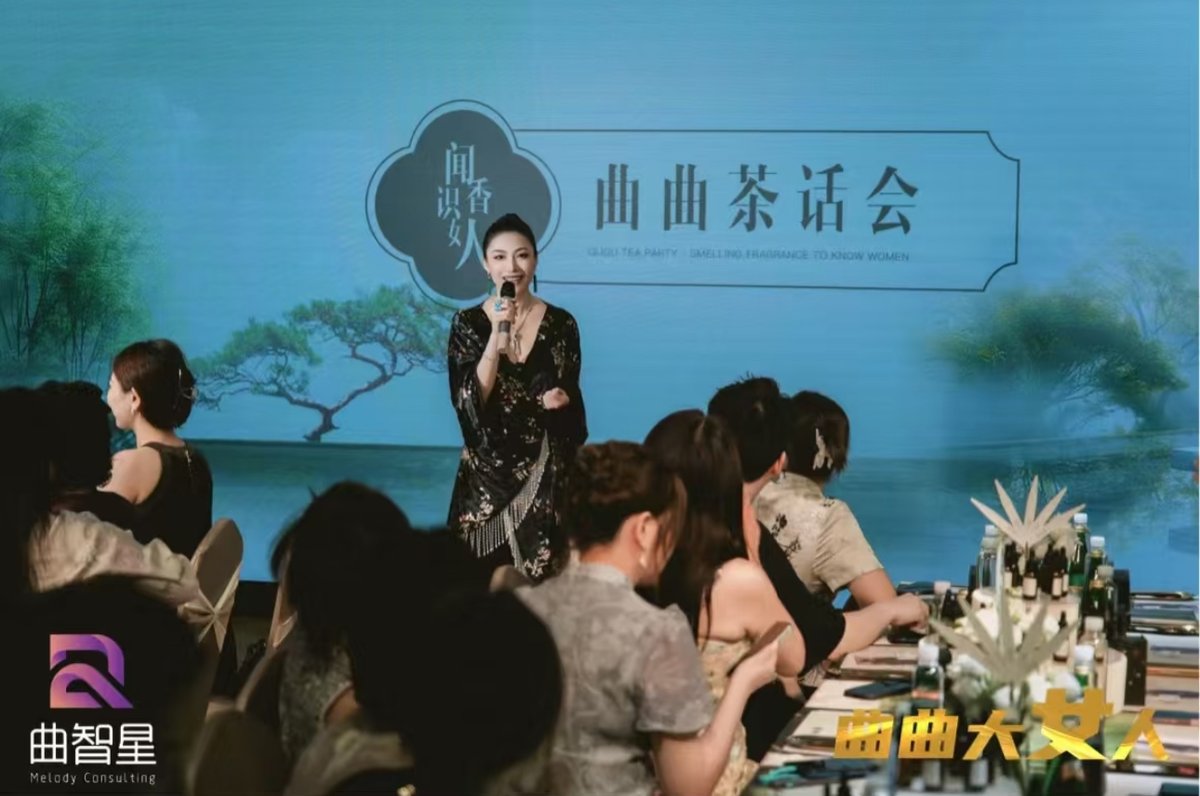
Even with all her public accounts banned, influencer Yue Chuanqu continues to host livestream sessions on her private channels and organize offline events for her paid subscribers. Edited recordings of these sessions also continue to circulate on social media platforms. (Screenshot from Xiaohongshu)
Amid controversies, some influencers are now trying to bring a certain level of expertise to their channel. With over 26,000 followers on Xiaohongshu, the founder of a relationship account called Smoothie, who requested to remain anonymous, is currently taking courses on mental health through Britain’s National Health Service. She sees value in her work that’s different from a traditional therapist.
“A therapist doesn’t usually give advice. It’s more about helping the client have their own realizations. But I would provide my clients with clearer, practical action plans,” says the London-based influencer.
She explains to TWOC that she sometimes provides her clients—mostly young, well-educated Chinese women who have lived abroad—with a list of ways to better communicate with their partners. She even outlines potential scenarios for how the conversation might unfold and advises on how to respond in each situation. “When women are more focused on their careers, they can’t afford to spend too much time thinking about what to do when they have relationship problems. So they outsource the process to me,” says the influencer. She considers her methods effective, noting that her current return customer rate exceeds 80 percent.
She admits there are limitations to the services she can provide. “If I notice a client might have significant mental health issues that concern me, I would check whether they’re already seeing a therapist and suggest that they seek help if they aren’t,” says the influencer. “Some psychological issues stem from deeply rooted perceptions of oneself and the world. It can require years of psychotherapy to uncover underlying causes.”
While the benefits of relationship advice offered by these livestreamers remain up for debate, it’s no secret that their business ventures, fueled by the popularity of their channels, have become lucrative enterprises, further blurring the line between genuine care and profit-driven entertainment.
According to Chinese data analysis platform Newrank, Li Dan, a top player in the field, earned an average of 1.4 million yuan per livestream in product sales last September alone. The influencer behind the channel Smoothie now offers a women’s growth camp at 199 yuan per person, an online book club for 450 yuan, and one-on-one consultation for 890 yuan per month. She is also planning on hosting more offline events in the future.
Even Yue, with her public accounts banned, has started a private community called “Bestie Alliance (闺蜜联盟),” where members can connect with Yue and other like-minded women. The entry fee currently stands at 199,800 yuan when TWOC inquired in December. She also sells one-on-one consultation and relationship courses for as much as 98,800 yuan during livestreams on her private platforms, according to the Guangzhou-based newspaper Southern Weekly.
Li Zhenzhen once spent less than 10 yuan on Goofish (also known as Xianyu), China’s largest online secondhand goods market, for Yue’s used course materials, which contained mind maps, recordings, and notes from her online classes. She says she is more impressed by the influencer’s marketing savviness than the content itself after reviewing the materials, recalling Yue once stating that she didn’t mind her content being pirated because if people found it useful, they would eventually become official subscribers.
Even though Li Zhenzhen never became a paid subscriber, nearly 800 women have joined Yue’s private community, pushing her earnings to over 100 million yuan just from the entry fee, according to Jiupai News.
Behind these staggering levels of consumption lies a deep societal demand for emotional connections and a desire to navigate the confusion surrounding love. A recent Fudan University study on Chinese youth consumption trends found that the high-pressure nature of modern life fuels a greater need for emotional bonds and outlets. Livestreamers like Li Dan and Yue have tapped into this trend, monetizing viewers who are no longer seeking just a simple transaction but looking for both emotional connection and spiritual fulfillment.
The predominantly female viewership of these channels also reflects changing public attitudes toward love and marriage in modern China. This shift is evident in declining marriage rates, as Chinese women have become increasingly cautious in relationships, valuing both their emotions and possessions. Many relationship livestreamers with legal backgrounds, such as the host of the channel “Sister Longfei,” who was once a lawyer and now has 9.8 million followers on Douyin (China’s version of TikTok), have gained immense popularity as people seek their advice on marriage and divorce.
The rise of feminist awareness in the country also plays a part in the popularity of these livestreams. While there are growing calls for women to be more autonomous, many still struggle to end unhealthy relationships, which can make them question their own independence and self-worth. “[These women] may find it hard to ask their friends for help as the advice they are often given is simply ‘Just break up. Love yourself. Be a strong, independent woman. You don’t need him,’” says Qiu, the Chengdu-based therapist. “[This advice] can feel dismissive.” Instead, turning to an influencer anonymously and drawing insights from others’ stories can seem like a safer and less judgmental option.
Li Zhenzhen confirms that even with her closest friends, she still hesitates to share relationship concerns. She now spends over three hours a week scrolling through relationship advice clips online. However, she has come to realize that relying solely on livestreamers’ counsel isn’t enough to make a real difference in her life.
“You might resonate with a seemingly insightful clip of advice, but that doesn’t mean you can immediately change your behavior,” says Li. “You still need to go through a lot of things by yourself to grow and make real changes in life.”
Can Livestreaming Be the New Way to Solve Relationship Issues in China? is a story from our issue, “Youthful Nostalgia.” To read the entire issue, become a subscriber and receive the full magazine.





